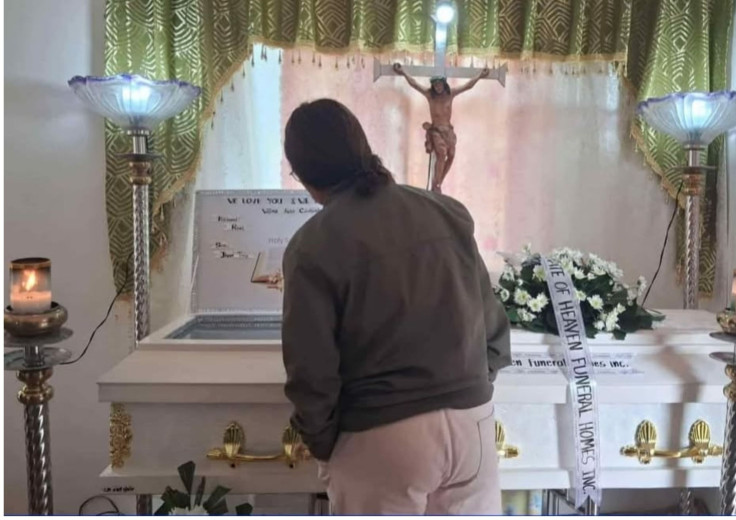
KEY POINTS
- Wilma Calidguid, 46, was found unresponsive on a bus travelling from Cebu, only miles away from her hometown.
- She had just completed work as a domestic helper in Kuwait and as a babysitter in Japan for her niece
- Her luggage contained gifts for loved ones, symbolising years of sacrifice and dedication.
Wilma Auza Calidguid was nearly home. After years spent caring for others abroad, she was finally returning to her small farming town in the central Philippines — but heartbreak awaited instead of celebration.
The 46-year-old had just completed stints working as a domestic helper in Kuwait and as a babysitter in Japan for her niece. Her long-awaited homecoming was supposed to take place on 6 August — a date she had shared with her husband. But Wilma had secretly booked an earlier return to surprise her family.
'She wanted to surprise us,' her sister shared tearfully. 'We thought we'd meet her at the port. Instead, we got the call that she was gone.'
A Journey Packed With Love and Gifts
On 4 August, Calidguid boarded a bus in Cebu for the last leg of her trip. Her luggage was filled with gifts.
Somewhere along the route to Dumaguete City, she began to feel sick — dizzy, nauseated, slumped in her seat. A bus conductor noticed and bought her a boat ticket to cross from Cebu Island to nearby Negros Island.
A fellow passenger later described what happened in a Facebook post: 'Men were helping her because she looked dizzy and was vomiting. When we reached Bato Port, she leaned forward and remained in that position. We thought she was sleeping. Before we reached Sibulan, the inspector noticed she wasn't moving. I checked her pulse, but there was nothing — she was already cold.'
By the time the bus pulled into Sibulan, local health workers said she was dead—the cause: cardiac arrest, with other complications.
Grief Spreads on Social Media Before Her Arrival
Back in Manjuyod, a coastal farming town of fewer than 40,000 people, neighbours had been preparing to welcome her home. Instead, the news of her death spread through Facebook faster than any official notice. A local village leader, Jennifer Cadano, phoned the family to confirm the tragedy.
Her body was returned to Barangay Concepcion, the neighbourhood where she grew up, to be woken according to local custom.
Support From the Government Arrives Late
On the third night of the wake, a representative from the Overseas Workers Welfare Administration, a Philippine government agency that assists citizens working abroad, arrived to offer condolences and explain the assistance available to them.
The agency promised the family bereavement assistance and guidance on claiming further aid from the Department of Migrant Workers' AKSYON Fund, which supports distressed or deceased migrant workers' families.
Wilma's husband, surrounded by neighbours and family, spoke with a hollow sadness. 'She gave so much,' her husband said softly, seated among relatives and neighbours. 'We were counting the days till her arrival.'
A Silent Epidemic Among Migrant Workers
Wilma's death underscores a troubling reality. For many Overseas Filipino Workers (OFWs), homecomings are not always triumphant. Some never make it back.
With over 1.9 million Filipinos working abroad in physically demanding and often emotionally taxing jobs — far from family and away from timely healthcare — untimely deaths remain a sobering truth.
Many return with gifts and savings. Others, like Wilma, return in a casket, their stories unfinished.
Final Farewell
Wilma's funeral is scheduled for 11 August — precisely one week after she boarded that final bus in Cebu. The family she planned to surprise is now left to mourn a woman who gave everything and asked for little in return.







